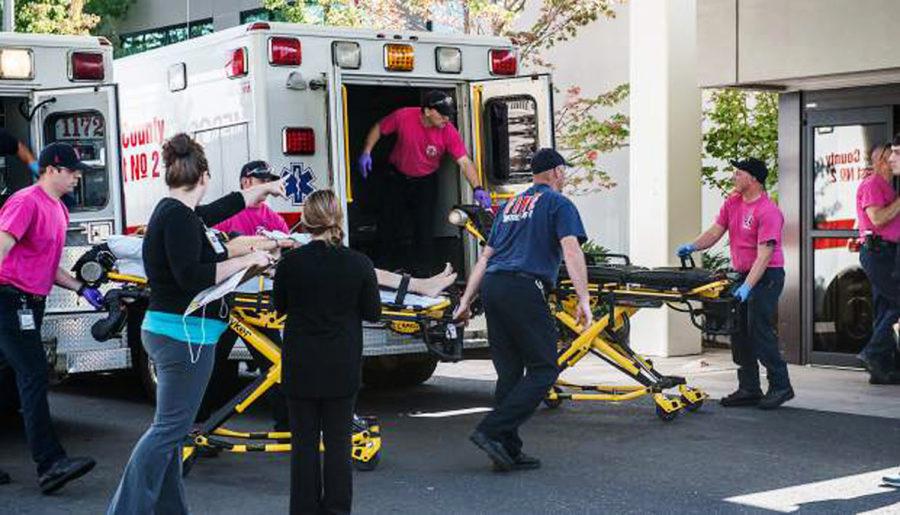The deadly mass shooting at Umpqua Community College in Roseburg, Oregon, last Thursday has added yet another point to the local campus carry debate at TCU, Kathy Cavins-Tull, vice chancellor for student affairs, wrote in an email. The shooting, in which a lone gunman killed 10 people and wounded seven others, occurred in a state in which a form of campus carry is legal. A 2011 Oregon Court of Appeals case determined that public higher education facilities in the state were not allowed to prohibit firearms on campus, although they could determine their own rules on whether to allow weapons in buildings. Umpqua Community College requires written permission to carry a handgun on campus, according to its student code of conduct. Oregon is one of nine states that allow firearms on public campuses. Universities decide their own policies in 21 other states, while the remaining 20 states ban guns on campuses to varying degrees. For TCU, the Umpqua shooting comes at a time in which the campus is embroiled in a debate over how to implement Texas’ campus carry law, passed earlier this year. Cavins-Tull wrote that the shooting has shone a new light on the campus discussion.
“Every time a tragedy occurs like yesterday’s shooting, people try to find a way of making sense of a complicated problem,” Cavins-Tull wrote. “I imagine that our campus is asking if having guns on this campus would have changed the outcome of this situation.
“I think these incidents create the context for the important decision of whether or not our campus feels that having more guns on campus or fewer guns on campus is the best way to be and feel safe,” Cavins-Tull wrote.
TCU students who responded to the campus carry poll conducted by SGA overwhelmingly voted against opting in to the statewide law. On Tuesday, the House of Representatives unanimously passed a resolution to show student support to opt out of campus carry.
Maddie Reddick, the TCU student body president, declined to comment on how the shooting would affect the debate and offered her sympathies towards the families of the victims.
Cavins-Tull said people on both sides of the issue just want what is best for students.
Justin Loar, a senior sociology major and director of operations of Liberty at TCU, said that while he is in favor of gun ownership and campus carry, he has been on both sides of the debate.
“This massacre, while tragic, has not changed my mind,” Loar said.
Loar said that even if campus carry is passed, no system will completely eradicate tragedy. “As evidenced by the Oregon shooting, allowing guns on campus is not a fool-proof plan that will completely eradicate gun crime,” Loar said.
Maggie Burreson, a senior religion and political science double major, offered an opposing viewpoint.
“I would lean towards TCU opting out of campus carry,” Burreson said.
Burresson said the Oregon shootings strengthened her belief in other areas of gun policy.
“That just solidified my belief that we need to make the access to guns harder,” Burreson said.
In addition to the students’ voice via the SGA resolution, the Board of Trustees will consider Faculty Senate’s vote in opposition of applying campus carry, parent organizations and other groups on campus in making the final decision regarding campus carry at TCU.
“We all feel an intense amount of responsibility for making this decision for our campus,” Cavins-Tull wrote. “We have had a lot of people and groups weigh in and are still taking their comments at [email protected].”
Sarah Breuner contributed to this story.




